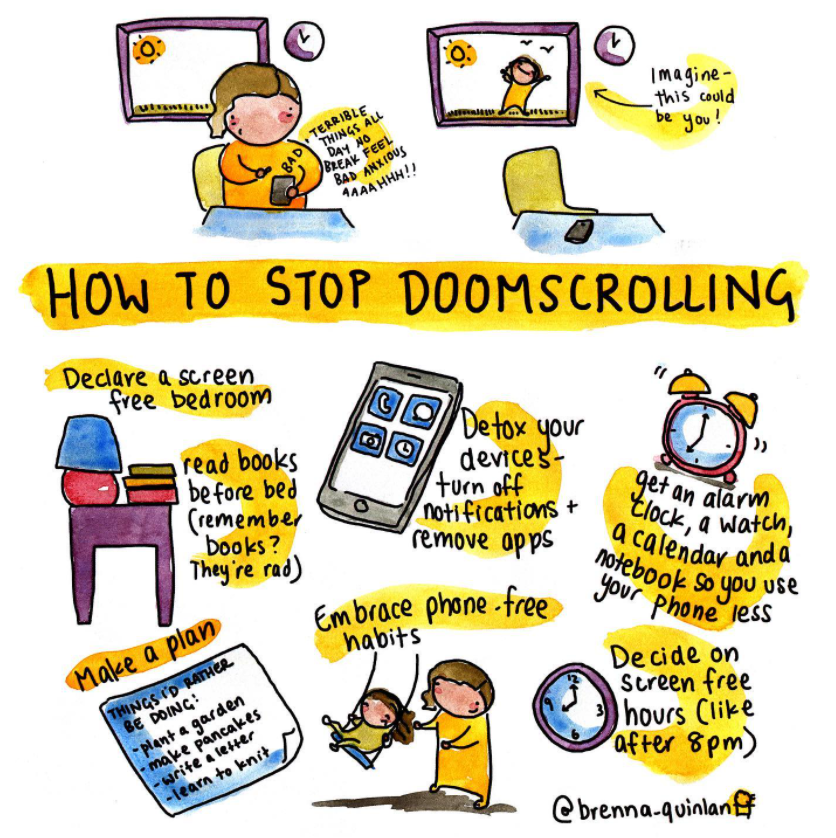In an increasingly connected world, news of international conflict can reach us instantly, often bringing with it feelings of fear, helplessness, and anxiety. Whether through news outlets, social media, or personal connections to affected regions, global unrest can deeply impact our emotional and psychological well-being - even when we are not directly involved. Anxiety during these times is a natural response to uncertainty, potential danger, and empathetic concern for others. However, when left unaddressed, this anxiety can interfere with daily functioning, relationships, and overall mental health. This page offers brief guidance on ways to set healthy boundaries with news consumption,, and find ways to support others and ourselves constructively. While we may not be able to control global events, we can take meaningful steps to protect our mental wellbeing and maintain a sense of stability amid the chaos.
Social Media Habits
While for many people it's important to stay up to date with different events around the world, constantly taking in news and information can be exhausting and lead to a lot of overwhelming feelings of anxiety, helplessness and guilt. 'Doomscrolling' is a habit that is easy to fall into especially when there's a lot activity in the news. It is easy for us to focus on the negative news stories and social media posts that are created, as they are often designed to grab our attention and make us feel strongly about the topic. With algorithms pushing content that we have previously engaged with, our newsfeeds can very quickly become filled with negative content.
This can leave us feeling anxious, scared, overwhelmed and helpless. See below for some tips on how to break the Doomscrolling habit.

Talking It Out
Talking about the issues that are concerning us is one of the best ways to find perspective and process the thoughts and feelings that we have. Being able to speak to the people that are close to us about what's going on can help to reassure us and also help to educate ourselves and others about global issues. However you might feel that you don't have people around you that you would be able to have these conversations with. If this is the case, get in touch with the NESCol Student Wellbeing Advisers who will meet with you to discuss your concerns and offer support.
You can make an appointment by using the link below and selecting 'wellbeing appointment' or you can also attend one of our drop in sessions to speak to a Student Support Tutor. You can find out more about our drop in sessions in the link below as well.
Bookings, Drop-in and Virtual Cafe information » North East Scotland College (nescol.ac.uk)
As a NESCol Student, you also have access to our 24/7 support platform Spectrum Life, which you can sign up to using your student email address and the organisation code which is 'NESCol'. Spectrum Life is an online hub of wellbeing, where you can learn more about mental health and access support from qualified Counsellors through the 24/7 helpline.
